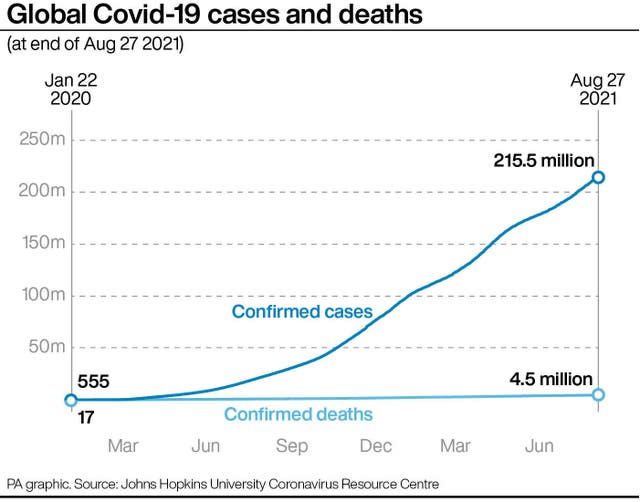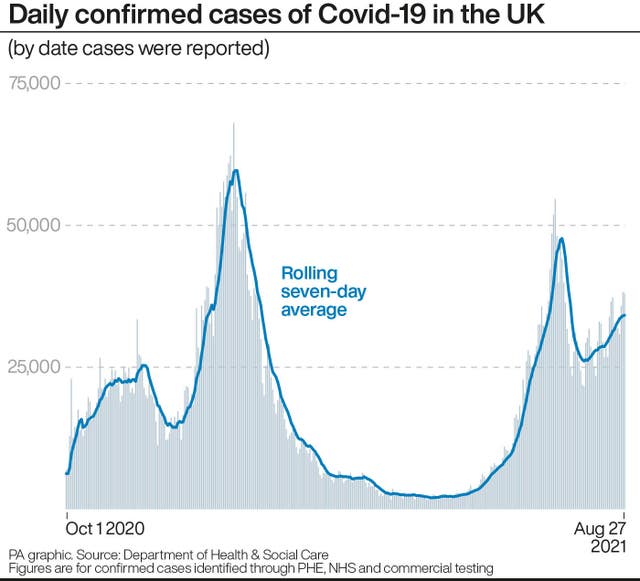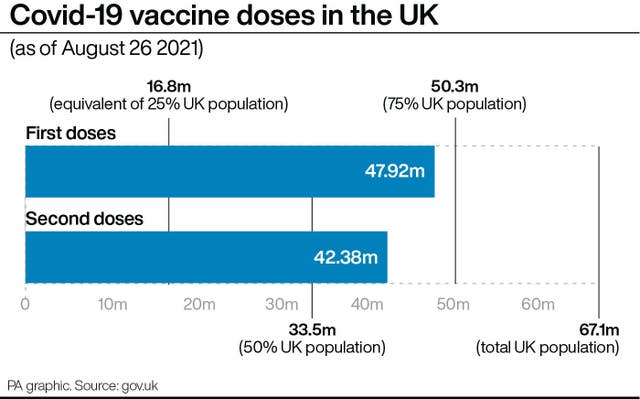Vaccinating younger children ‘could provide protection beyond schools’
Government adviser Dr Mike Tildesley said September will be a key month for monitoring Covid-19 data.

Parents heading back to work after the summer holidays and increased mixing in other settings is a risk that comes with the return of pupils to schools next month, an expert has warned.
Dr Mike Tildesley, a member of the Scientific Pandemic Influenza Group on Modelling (Spi-M) which advises the Government, said September will be a key month for monitoring Covid-19 data.
Speaking to Times Radio in a personal capacity on Saturday, he argued that vaccinating younger age groups could provide coronavirus protection beyond the school environment.

He said: “When schools reopen that does lead to more children mixing in closed environments.
“We have to remember... when we talk about schools going back, it’s not really the risk around schools. Schools are no more risky than any other environment where people mix in close proximity to one another.
“But it’s what happens around schools – when schools go back, parents tend to return to work and people mix in other environments.
“So it’s that sort of protection that if we have high levels of vaccination across younger age groups, it should provide that both direct and indirect protection in those settings.”
His comments come as the NHS prepares to ensure it is ready to potentially offer Covid-19 vaccines to all 12 to 15-year-olds in England from early September.

A decision has yet to be taken regarding giving jabs to this age group and the Joint Committee on Vaccination and Immunisation (JCVI) has yet to advise on broadening the rollout.
Experts have previously warned that it is “highly likely” there will be large levels of coronavirus infection in schools by the end of September.
Advisers have told the Government to plan for this outcome, and said it remains uncertain as to whether the high prevalence might be as a result of spread of the virus within schools or in the community.
Dr Tildesley said it “remains to be seen” how things might change when people start to mix more in the autumn.
He told Times Radio: “I think the key thing for me actually is what’s going to happen next month.
“Children are going back to school, people are coming back off their summer vacations and I think monitoring what that does to the data – and not just cases, but monitoring very carefully hospital admissions and deaths – will really dictate I think what’s going to happen in the autumn.
“We’re in quite a different place from where we were 12 months ago. Obviously, we have the Delta variant which is more transmissible, we have quite high prevalence, a lot of cases, but of course on the other side, we have a very good and effective vaccination campaign.

“So I think it remains to be seen how they will trade off against each other and what that will do when September comes and people start to mix a little bit more.”
Vaccinating younger children against Covid-19 could help protect them against long Covid as well as providing indirect protection for elderly or vulnerable relatives, he added.
He said: “A younger person, if they get Covid, most of those individuals are very unlikely to develop severe symptoms.
“But of course, we do need to remember that the younger you are, you’re not just taking the vaccine for yourself, you’re taking it for, potentially, indirect protection for your more elderly and more vulnerable relatives.
“And then, of course, there’s this issue that some commentators talk about, which is the potential for long Covid, and that possibly protects younger people if they’re vaccinated.
“All of these things need to be weighed up. Because it’s children there are a lot of ethical concerns around that.
“So this is why it’s taken a little bit of time for JCVI to make that recommendation that the Government can then make a decision on.”





